Friday 14th September. We decided to go to the beach.
Why not?
We were in Mauritius, it was warm and sunny and it would be our last day in Pointe aux Canonniere and our last visit to the glorious Mont Choisy Beach. We had planned to go to Port Louis, but it was a public holiday , and the buses were running a reduced service and we thought that a lot of Port Louis might be closed in any case.
In Mauritius they have many public holidays marking religious ceremonies and festivals for all the religions on the island. That day, it was the culmination of the ten day Ganesh Chaturthi Festival.
Ganesh (a summary of what I’ve found out).
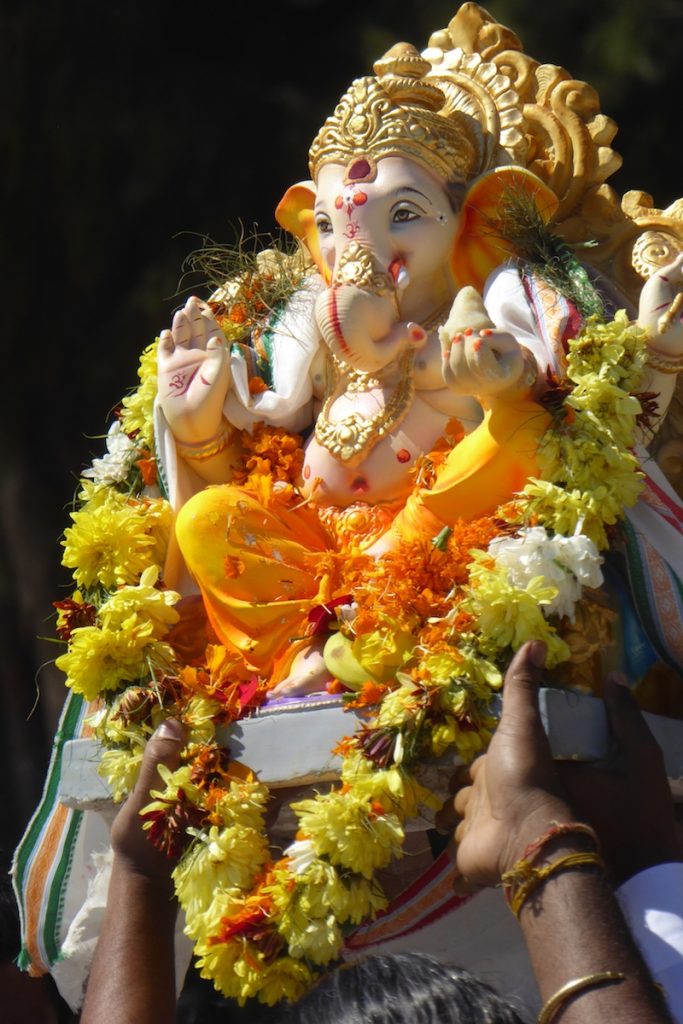
Ganesh is the elephant headed son of Parvati and Shiva, and is one of the most popular deities in Hinduism.
The story (or one of them) has it that Ganesh was created by Parvati so that he could stand guard at the door while she bathed. Shiva, or returning, did not know that Ganesh was his son, and enraged at being denied access to his wife, chopped off Ganesh’s head.
When he later found out the truth he promised to replace his son’s head with that of the first animal that came along which happened to be an elephant. Ganesh was restored to life and rewarded by being made the God of New Beginnings.
Ganesh is worshipped as the God of New Beginnings and as the Remover of Obstacles. He is also the God of Wisdom. He is usually the first of the deities to be acknowledged when worshippers enter a temple. Prayers to Ganesh are invariably accompanied by the smashing of a coconut, symbolic of smashing the undesirable forces inherent in oneself.
So when we arrived at the beach, it coincided with the culmination of the ten day festival. The time when the idol (made of clay or papier-mâché) is carried in a public procession, accompanied by music and chanting to be ultimately immersed in a body of water, traditionally the sea.
We could see scores of people all along the bay, mostly in the shade of the trees fringing the beach. Loud music, mainly drums and bells drifted along. Sometimes the beat from the different groups seemed to be in time with each other. It became apparent quite quickly that there were many individual groups and families, each with their own idol, and their own procession.
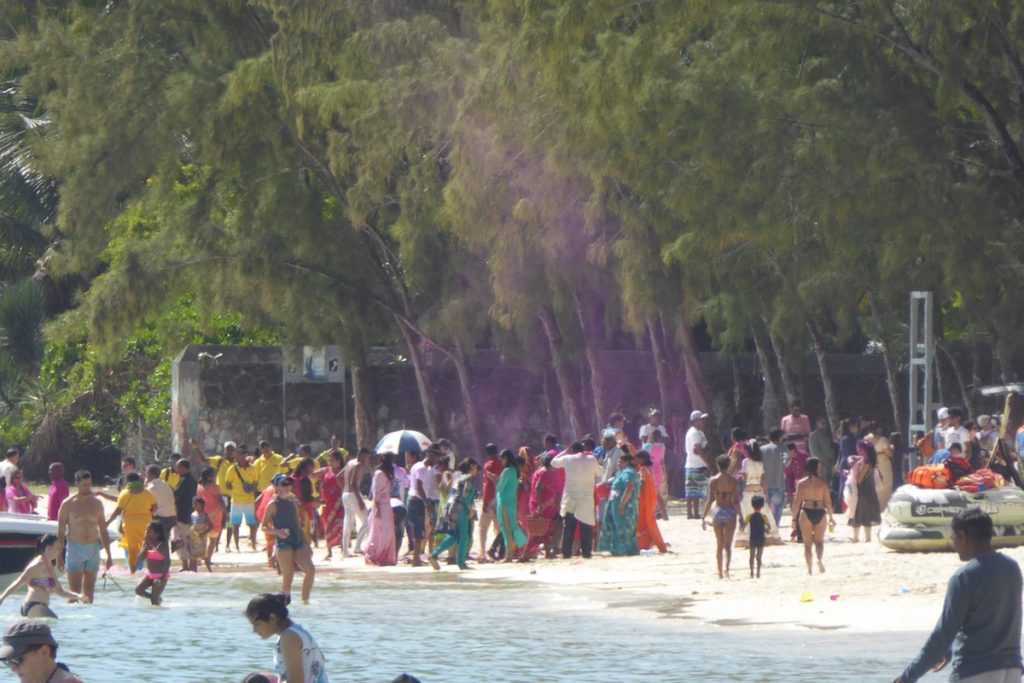
So what we witnessed was a number of these groups, arriving at the shore accompanied by their idol and music and people from many generations brought together by the festival. The ladies in particular were resplendent in beautifully coloured saris, the girls equally well dressed but enjoying the sun and the warm water too alongside the younger boys. It was the men who carried the idol, and immersed Ganesh in the sea, again men, youths and boys from different generations all taking a role in the ceremonies.
After Ganesh was immersed and left in the sea, final offerings of lamps, flowers, incense, fragrance and food were made and cast into the gently lapping waves, stained purple by the pigment used in the ceremonies.
This went on up and down the beach all afternoon, until the sun began setting.
We left after a memorable afternoon. We’d witnessed something we had not expected. I can’t say I understood any of what was going on at the time, but I now know just a little bit more about this widely followed religion.
Researching this festival has only scratched the surface and has made me realise how little I know about Hinduism and how much I need to learn before we head to India on the 27th of September.
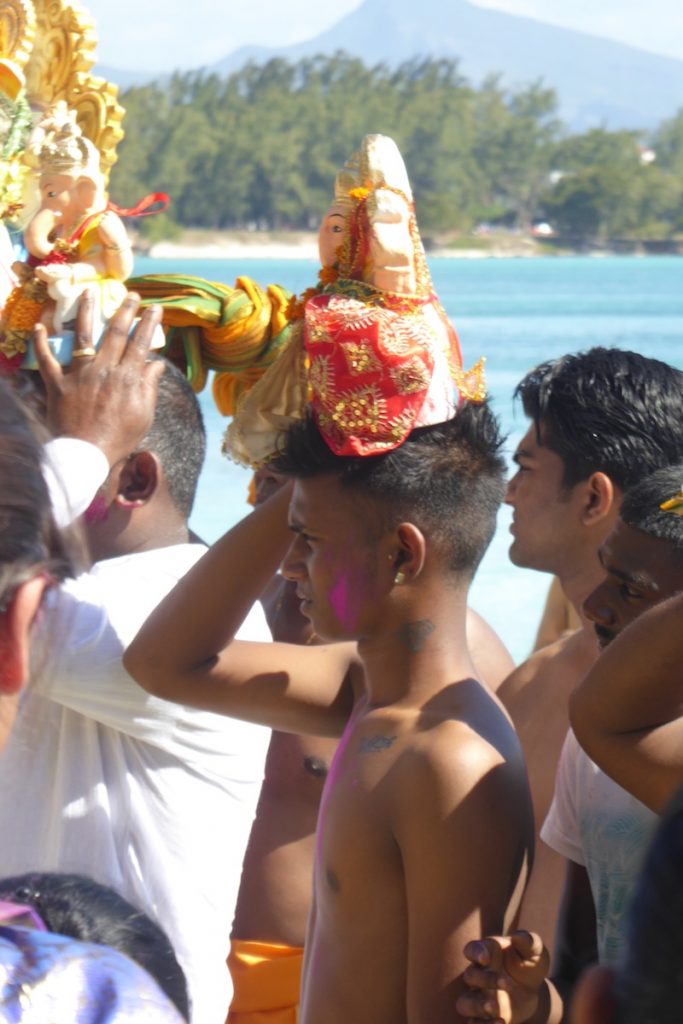
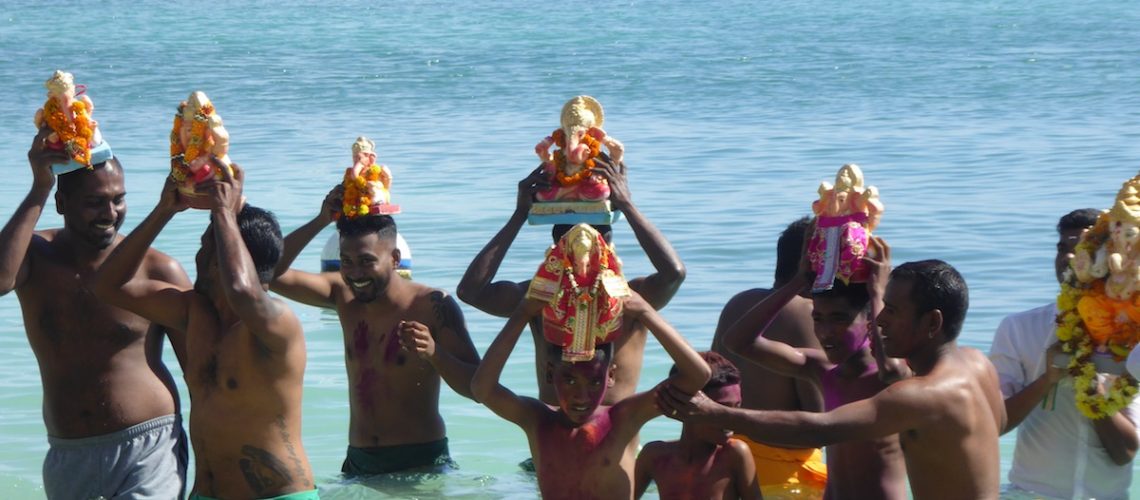
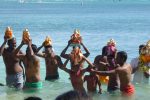
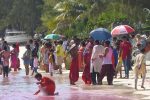
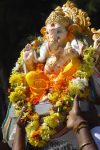
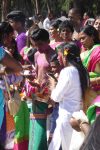
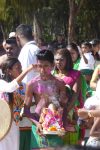
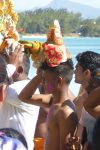
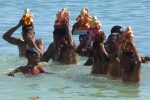
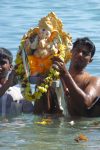
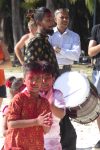
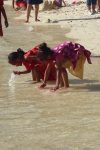
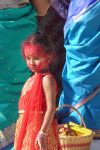
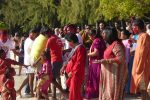
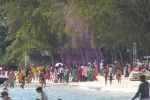

2 thoughts on “Ganesh Chaturthi Festival 🇲🇺”
How lucky to have seen such a spectacle- research is the god of travel! Hilary
What a great experience and lovely interesting story and lovely pictures. Take care. Xxx